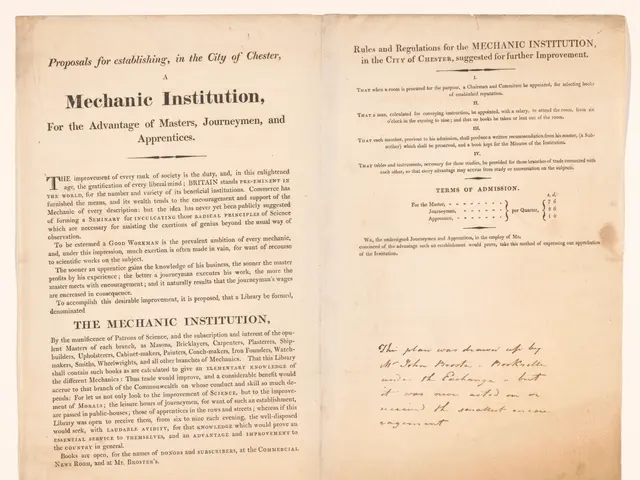Mastering attentive communication in community exchanges
In today's fast-paced world, active listening has emerged as an essential skill in fostering connections within communities. Rather than exclusive to communication, active listening is an art form that promotes genuine understanding and meaningful exchanges, providing a reprieve from the technology-driven conversations. Active listening, a practice that transcends mere reception of words, emphasizes engagement with the speaker, understanding their message, and responding thoughtfully. This skill is critical in addressing the challenges and complexities of diverse communities.
The practice of active listening is grounded in several fundamental principles. These principles include:
- Full attention: Actively listening demands the listener's presence, requiring the conscious abstention from distractions for effective engagement with the speaker.
- Understanding, not judgment: Listeners should approach conversations with an open mind, setting aside biases and preconceived notions.
- Empathy: This demands genuine caring for the speaker's perspective and emotions, fostering a deeper connection between parties.
- Reflective feedback: Confirming understanding is pivotal in active listening, and feedback can be provided through restating or paraphrasing the speaker's message.
Active listening offers numerous benefits in community interactions. Strengthening trust, rapport, and conflict resolution are particularly significant advantages. When members feel heard and understood, they are more likely to reciprocate with trust and cooperation. In group settings, active listening facilitates dialogue, allowing parties to identify common ground and discover sustainable solutions. Additionally, it contributes to inclusivity by ensuring minority voices are acknowledged and respected, fostering a sense of belonging. Lastly, active listening enables personal growth and learning by exposing individuals to diverse perspectives and experiences-widening their worldview.
Various barriers hinder effective active listening. Distractions, whether internal or external, and mental prejudices can obstruct genuine engagement. Listeners must create an optimal listening environment, minimize distractions, and practice patience, allowing them to focus fully on the speaker and refrain from judgment. Furthermore, sensitivity towards language and cultural differences is essential to acknowledge and value unique viewpoints. By surmounting these barriers, individuals can cultivate more effective listening skills, leading to richer and more inclusive interactions within communities.
Effective techniques for enhancing active listening skills include paraphrasing, utilizing open-ended questions, harnessing the power of silence, and mindful body language. Deliberate practice enables the refinement of these techniques, leading to more empathetic and engaging interactions within communities.
In community building, active listening plays a vital role. By fostering environments where individuals feel valued and understood, active listening strengthens the sense of community and encourages collaborative problem-solving. Active listening contributes to resilience, ensuring communities respond effectively to crises and adapt to change. Furthermore, it inspires leadership development, allowing governing figures to make informed decisions that reflect the collective wisdom of the community. With active listening at the core of community building, the resulting environment is vibrant, cohesive, and thriving.
Incorporating active listening into daily life is essential for nurturing strong relationships. It calls for conscious commitment and patience, as individuals navigate the complexities of modern communication. By setting aside time for intentional conversations, one can focus entirely on the speaker without distractions, contributing to a culture of empathy and understanding. Active listening enables individuals to co-create spaces where everyone feels empowered to express themselves and fosters a sense of belonging. Building healthy communities requires the active and deliberate practice of active listening.
- Active listening, with its focus on empathy, understanding, and reflective feedback, plays a crucial role in personal growth as it exposes individuals to diverse perspectives and experiences, broadening their worldview.
- Cultivating strong relationships relies on the practice of active listening, which necessitates a conscious commitment to set aside distractions, engage without judgment, and create an optimal listening environment that fosters a culture of empathy and understanding.






